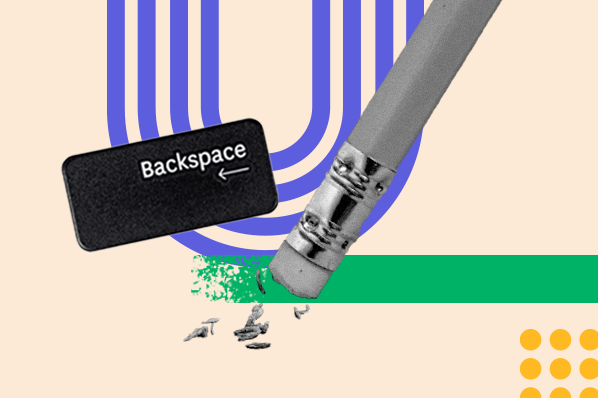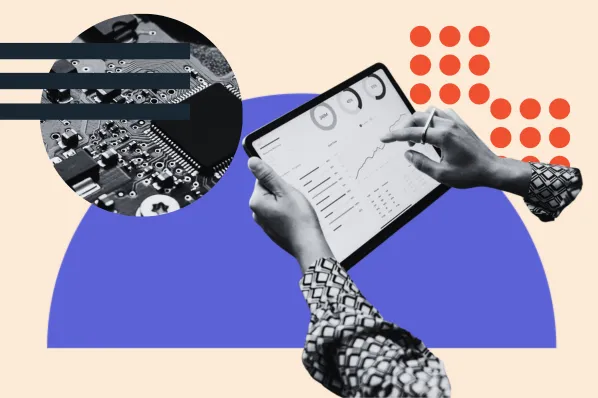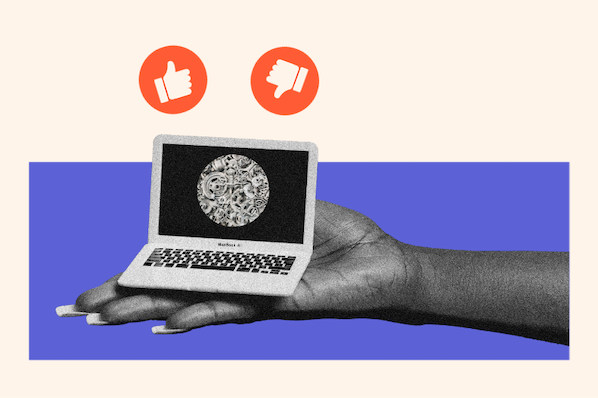Welcome to "The Pipeline" — a weekly column from HubSpot, featuring actionable advice and insight from real sales leaders. This week's installment comes from Tim Jones, CEO of Eternal Works.

Clients aren’t buying like they used to. AI and the pandemic threw a wrench in the typical sales funnel that companies have now realized is too outdated to consistently bring in the profits they want to see.
That’s why branching into new territory is more important than ever. But you don’t want to expand into new industries while increasing costs, losing time, and ultimately, costing your business sales.
Don’t worry. In this post, we’ll further explore the concept of using AI to sell into new industries and review five ways your sales team can leverage it.
5 Ways Your Team Can Use AI to Sell Into New Industries
1. Industry Research
You can’t sell if you’re not an expert on something. Your prospects will know, and it will ultimately lower your brand’s reputation to try and compete with industry experts consistently.
Instead of losing dozens of hours mastering new topics, you can use AI to perform sales-focused industry research. AI can provide invaluable perspectives on different industries and identify key pain points that your sales team will address.
Imagine you are the founder and manager of a company that once sold project management software to IT companies, but now, you’re expanding your focus to marketing agencies — specifically catering to internal marketing teams.
In this example, you could use AI to request an industry overview of the marketing industry and then request specific pain points for someone who would buy your services. Moreover, you can tell AI about your product, then ask it to directly correlate its features and benefits to your new audience’s needs.
Other ways to use AI for industry research include:
- Identifying key decision makers by job title and role
- Discover well-known associations that your decision-makers would be a part of
- Get demographic information for key decision-makers
- Create multiple buyer personas in minutes
- Get industry best practices around your product
- Discover common misconceptions about your product that you can address through marketing and sales
2. List Building
You no longer have to manually trudge through the internet, looking for the top companies in an industry or struggling to narrow your focus to the most profitable niches. With AI, sales teams can easily identify key players in their target demographic, then dig deeper to get valuable insights on top-performing companies and associations.
As a SaaS company founder, you could use AI to request a list of the top 10 most profitable marketing agencies in the United States, then, ask it to provide a list of the top agencies in your target cities. From there, you can start performing more detailed research that reveals key decision makers, organizational hierarchy, and opportunities for improvement that your platform can help them achieve.
Using AI to generate lists of associations, companies, and national, local, and annual events can cut your research in half.
3. Personalized Sales Outreach
Your SaaS company has compiled a list of target companies, identified key organizations in the marketing industry, and is now ready to start reaching out to managers at various companies.
This is the most important part of your transition — getting your foot in the door and showing recipients why your company is worth listening to.
AI could help write personalized email templates that target the specific role of your target audience. You don’t want emails written toward a marketing director when the real person you should be speaking to is the HR manager.
Similarly, you wouldn’t want an email to be so vague that it feels copy-and-pasted directly into someone’s inbox. If it even gets opened, it will be sent right to the trash.
AI helps personalize your emails for the audience while selecting the appropriate tone and touchpoints. It can also tailor your company’s USPs to each target, hitting all their needs in one go without placing the focus entirely on your business.
Remember, you want to stay focused on your audience. A lot of sales companies struggle to do this when they transition into new industries. They’re desperate to prove their merit, so they’ll go overboard telling their targets about what they do and who they’ve worked with.
In reality, what your audience wants is to know that you’re in tune with their needs and you have what it takes to make their jobs easier. This translates into real benefits like saving time or money, increasing sales, or attracting more customers.
4. Content and Messaging Optimization
AI as a content writing tool is a complete game-changer, especially for sales teams that may not have the marketing finesse to pull it off on their own. Even though you may understand the different parts of the flywheel, it’s not always enough to personalize messaging to really connect with your targets at the right moment.
With the help of AI, you can develop entire content strategies that address specific pain points and gently guide your audience toward conversion. You can use AI to write specific content that addresses the needs of your audience and correlates it with the benefits of your product or service.
Let’s say that your SaaS business has managed to connect with some directors of marketing agencies, but you have no idea how to really keep the conversation going. How is your product going to make their company run more efficiently? AI can craft a LinkedIn messaging sequence or email flow that positions your company as a thoughtful, empathetic problem-solver.
It helps shift the focus from what you sell to what you can do, and it can personalize this for every industry you engage with.
5. Competitive Analysis
AI makes it easier than ever for you to know what you’re up against in any industry. You can request a list of your potential competitors after explaining what you do and what you sell. You can also ask AI to highlight the key differences between you and your top competitors, so you can improve your marketing and feel more confident during demos, discovery calls, and meetings.
In our example, your project management software is up against the likes of Asana, Trello, and Monday.com. You need to understand which software your target audience currently uses, as well as which ones they’re most likely to compare.
Using AI, you request a rundown of the top most popular project management tools for marketing agencies. You soon discover that they all involve complex user interfaces that frequently slow down productivity and create confusion for different marketing departments.
Now, you have a key solution to offer: your straightforward project management software is easy to use and has an IT-inspired ticketing system that helps everyone stay on the same page, no matter what department they work in.
Finally, you turn to artificial intelligence to offer you a breakdown of your top competitors’ marketing processes. You get an easy recap of their most common marketing platforms, email strategy, and social posts.
It becomes easier for your agency to position your company as an inspiring new entrant in the industry. Rather than feel like you’re the intern sitting in on a boardroom meeting, you can feel like a powerful business leader who offers your audience something fresh and exciting for their own companies.
Using AI to Bridge the Gap
Sales teams that leverage AI will ultimately make the leap into other industries without risking their entire business model. Through industry research, list building, personalized sales outreach, content optimization, and competitive analysis, AI can walk your company through each phase of entering a new market.
As always, humans are still required to perform follow-up research and make informed decisions. What we’re seeing now is that AI in sales proves that technology can transform the way we work, expand our opportunities, and make connecting with the right people in your audience easier than ever before.
![Download Now: The State of AI in Sales [2023 Report]](https://no-cache.hubspot.com/cta/default/53/6f674af4-3116-43b0-8a54-4a64f926afb6.png)



![Will AI Steal Your Sales Job? We Asked HubSpot Experts [+ Research]](https://blog.hubspot.com/hubfs/AI%20steal%20jobs%20FI.png)

![The Benefits of AI Cold Calling [+Tips and Best Practices]](https://blog.hubspot.com/hubfs/ai-cold-calling.webp)
![How to Understand Your Prospects Better With AI [Expert Insights]](https://blog.hubspot.com/hubfs/AI%20Understanding%20Prospects.png)



![7 Mundane Sales Tasks You Can Skip with AI [& How to Do It]](https://blog.hubspot.com/hubfs/sales-tasks-ai.webp)